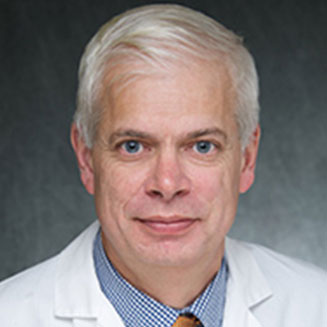| SUNDAY, SEPTEMBER 30 |
|
| 2:30 |
4:00 |
Exhibitor set-up |
|
|
|
|
|
| 4:00 |
4:45 |
OPENING SESSION |
|
|
Welcome |
Jonathan D. Linkous, Mary Ann Liebert |
|
|
KEYNOTE: Our AI Future in Healthcare: A Physicians Perspective |
Christine Cassel, MD, Professor, UCSF, former President, American Board of Internal Medicine, former President and CEO, National Quality Forum |
|
|
|
|
| 4:45 |
6:15 |
NETWORKING RECEPTION (cash bar) |
|
|
|
|
|
| MONDAY, OCTOBER 1 |
|
| 7:30 |
8:30 |
CONTINENTAL BREAKFAST |
|
|
|
|
|
| 8:30 |
8:45 |
Introduction for the Day |
Jonathan D. Linkous, CEO, PATH |
|
|
|
|
| 8:45 |
10:00 |
OPENING KEYNOTES: Setting the Stage |
|
|
KEYNOTE: Tomorrow’s Healthcare Delivery System |
Jay H. Sanders, M.D., FACP, FACAAI, FATA, CEO, The Global Telemedicine Group and Professor of Medicine (Adjunct) Johns Hopkins |
|
|
KEYNOTE: The Intersection of Robotics, AI and Telehealth |
Yulun Wang, Founder, Chairman and Chief Innovation Officer, InTouch Health |
|
|
|
|
| 10:00 |
10:30 |
COFFEE BREAK |
|
|
|
|
| 10:30 |
11:45 |
PANEL: Successful AI Applications – What Have We Learned from Imaging AI in Radiology? |
|
|
Lessons Learned in Computer Aided Diagnosis |
Seong K. Mun, PhD, Director, Arlington Innovation Center for Health Research, Virginia Tech, CEO OSEHRA |
|
|
Computer Aided Diagnosis in Prostate MRI: Results from a Global Study |
Peter Choyke, MD, Director of Molecular Imaging, National Cancer Institute, National Institutes of Health |
|
|
Machine Learning in Feature Space – Adding New Dimensions to Imaging Research |
Fred Prior, PhD, Chair of Bioinformatics, University of Arkansas |
|
|
Artificial Intelligence in Diagnostic Imaging: Hype, Reality, and Future Directions |
Eliot Siegel, MD, Vice Chair of Information Systems and Associate Vice Chair, Diagnostic Radiology and Nuclear Medicine, University of Maryland School of Medicine |
|
|
|
|
| 11:45 |
1:15 |
BUFFET LUNCH and Exhibitor Introductions |
|
|
|
|
|
| 1:15 |
2:00 |
PANEL: Two Perspectives on Digital Health from Two Digital Giants |
|
|
|
IBM’s Priorities in the Future of Digital Health |
Kyu Rhee, MD, MPP, Vice President and Chief Health Officer, IBM Corporation and IBM Watson Health |
|
|
GE’s Priorities in the Future of Digital Health |
Travis Frosch, Senior Director, Analytics, GE Healthcare |
|
|
|
|
| 2:00 |
2:30 |
KEYNOTE: Updates from the National Coordinator for Health IT |
Don Rucker, MD, National Coordinator for Health Information Technology, |
|
|
|
|
| 2:30 |
3:00 |
COFFEE BREAK |
|
|
|
|
|
| 3:00 |
3:45 |
PANEL: Sccessful AI Applications – Ocular Medicine |
|
|
Pivotal trial of an autonomous AI-based diagnostic system for detection of diabetic retinopathy in primary care offices |
Michael Abràmoff, MD, President and Director, iDx, University of Iowa Hospitals and Clinics |
|
|
Clinical Implementation Results of an AI Diabetic Retinopathy Screening System at Diabetes Care Clinics |
Simon Barriga, PhD President and Chief Research Scientist, VisionQuest Biomedical |
|
|
|
|
|
|
|
|
| 3:45 |
4:45 |
PANEL: Legal and Policy Issues Surrounding the Use of Advanced Technologies to Provide Healthcare Services |
|
|
Seasoned experts in policy and legal issues surrounding the use of technology in medicine discuss where we are today, barriers we need to overcome and future prospects. |
Ritika Chaturvedi, PhD, Engineer, RAND Corporation |
|
|
Gary Capistrant, Policy Advisor, PATH |
|
|
Bradley Merrill Thompson, JD, Member of the Firm, Epstein Becker & Green, P.C. |
|
|
|
|
| 4:45 |
5:30 |
PANEL: Transforming Health Delivery through Technology Innovation in Large Health Systems |
|
|
Building a Transformative Digital Future in Healthcare |
Neil Gomes, Chief Digital Officer, Senior Vice President for Technology Innovation and Consumer Experience, Thomas Jefferson University & Jefferson Health |
|
|
Intelligence in the Operating Room |
Brian Miller, PhD, GM & SVP of Systems and Vision, Intuitive Surgical |
|
|
|
|
| TUESDAY, OCTOBER 2 |
|
|
|
|
| 7:30 |
8:30 |
CONTINENTAL BREAKFAST |
|
|
|
|
|
| 8:30 |
9:00 |
KEYNOTE: AI And Clinical Transformation — Positive Disruption On Every Front |
Molly Coye, MD, Executive in Residence, AVIA Health, Board Member Aetna |
|
|
|
|
| 9:00 |
9:30 |
INVESTING IN ADVANCED HEALTHCARE TECHNOLOGY: A Perspective from Corporate Venture Capital |
Oliver Keown, MD, Senior Associate Healthcare Investor at GE Ventures, |
|
|
|
|
| 9:30 |
10:00 |
COFFEE BREAK |
|
|
|
|
|
| 10:00 |
10:30 |
A GLIMPSE AT THE FUTURE: AI in Military Healthcare: Robotics Enabled Autonomous and Closed Loop Trauma Care in a Rucksack – TRACIR |
Ronald Poropatich, MD, Director, Center for Military Medicine Research – University of Pittsburgh |
|
|
|
|
| 10:30 |
11:45 |
PANEL: Remaining Independent – AI and Automation in Chronic Care and Home Monitoring |
|
|
Virtual Nurse Assistants in Healthcare: How AI is Propelling the Future to Help Solve a Trillion-Dollar Problem |
Wolf Shlagman, CEO, Care Angel |
|
|
Aging in Place and Value-Based Care – Does AI Power Their Intersection? |
Laura McIntosh, PhD, CEO and Founder, EmPowerYu |
|
|
Positive Results of Artificial Intelligence that Began With Patients at Johns Hopkins University’s Copper Ridge Institute. |
Daniel Pompilio, CEO, SimpleC |
|
|
The Future Has Arrived: Continuous Vital Sign Monitoring with AI and Augmented Reality |
Larry Steinberg, Cloud DX |
|
|
|
|
| 11:45 |
12:00 |
WRAP-UP – Getting to the Future: Setting the Action Agenda for PATH |
|
SPEAKER BIOS
Michael D. Abràmoff, MD, PhD, Founder and President of IDx. Dr. Michael D Abràmoff, MD, PhD is a fellowship‐trained medical retina specialist with a PhD in image analysis, and the Robert C. Watzke Professor of Ophthalmology and Visual Sciences at the University of Iowa Hospitals and Clinics, with joint appointments at Biomedical Engineering, and Electrical and Computer Engineering. Dr. Abramoff is the inventor of 10 patents and 6 patent applications, editor of the scientific journals Investigations in Ophthalmology and Visual Science (IOVS), and Nature Scientific Reports, past editor of IEEE Transactions in Medical Imaging (TMI), and past Program Chair for the Association for Research in Vision and Ophthalmology (ARVO) annual meeting. IDX, a privately-held AI diagnostics company, received approval from the U.S. Food and Drug Administration to market IDx-DR, an AI-based diagnostic system for the autonomous detection of diabetic retinopathy, a leading cause of blindness.
![]()
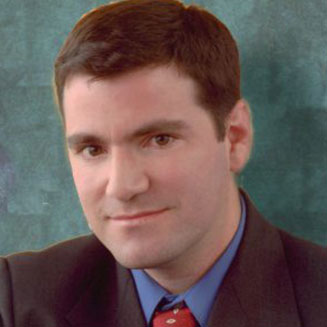
Simon Barriga, President and Chief Research Scientist, VisionQuest Biomedical. Simon Barriga is the principal scientist and engineer behind the development of the VisionQuest’s AI-based diabetic retinopathy screening software, EyeStar. He has dedicated 15 years to the development, testing, implementation, and now commercialization of EyeStar. Dr. Barriga and his team have developed multiple AI-based systems for retinal image analysis, including assessment of cardiovascular disease signs in the retina, macular degeneration, glaucoma, and cerebral malaria. These systems, developed under NIH small business grants, are now making their way into clinical applications. In one project, VisionQuest is deploying AI screening for DR in Mexico. Other efforts include a telemedicine service for telemedicine-based DR screening in New Mexico, and a clinical research project to improve detection of cerebral malaria in Africa. Dr. Barriga earned his Bachelor’s in Electrical Engineering from the Catholic University in Lima, Peru, and his Master’s and PhD in Electrical Engineering from the University of New Mexico.
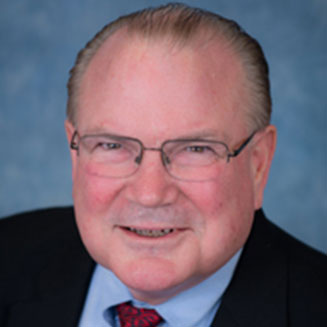
Gary Capistrant, Senior Policy Advisor, PATH. Gary Capistrant is the former Chief Policy Officer at the American Telemedicine Association. His expertise in health policy is based on over 30 years’ experience with Medicare, Medicaid, and national health reforms. Mr. Capistrant’s knowledge of health policy has led him to become a trusted advisor to associations, innovative health providers and Wall Street investment analysts. He is also the former Director of Congressional Relations for the American Health Care Association, Staff Director of the State Medicaid Directors Association and Health Legislative Assistant for former Rep. Jim Corman.
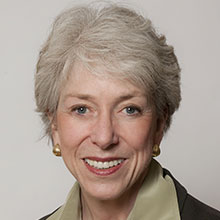
Christine K. Cassel, MD, Visiting Professor at the University of California, San Francisco. She was previously the Planning Dean of the Kaiser Permanente School of Medicine and the President and CEO of the National Quality Forum. She is a leading national expert in geriatric medicine, medical ethics, health policy and quality of care. Dr. Cassel is one of 20 scientists chosen by President Obama to serve on the President’s Council of Advisors on Science and Technology (PCAST), which advises the President on science, technology, and innovation relevant to responsible and effective policy. Among her many professional achievements and honors, Dr. Cassel is a member of the Institute of Medicine, was President of the American College of Physicians, Chair of the American Board of Internal Medicine, President of the American Federation for Aging Research, and was a member of the Advisory Committee to the Director at the National Institutes of Health. She has served on the boards of directors of Kaiser Foundation Health Plan and Hospitals, Premier Inc., and the Greenwall Foundation.
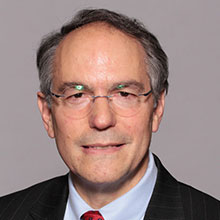
Peter Choyke, National Cancer Institute. Dr. Peter Choyke directs the Molecular Imaging Program at the National Cancer Institute at the National Institutes of Health. He received his MD from Jefferson Medical College and completed a residency and fellowship in Diagnostic Radiology at Yale and Penn respectively. He is currently Chief of the Molecular Imaging Program in the National Cancer Institute. He has pioneered the use of advanced medical imaging in oncology. In the 1990s he helped discover the genes responsible for hereditary renal cancers including von Hippel Lindau (VHL), Birt Hogg Dube (BHD), Hereditary papillary type 1 (MET) and Hereditary leiomyosarcoma renal cell carcinoma (SDH). In the 2000s his group pioneered the development of MRI-US fusion biopsy of the prostate that has revolutionized the way prostate cancer is diagnosed. Currently, his team is focusing on new theranostic and molecular imaging approaches in oncology including photoimmunotherapy, a promising new method of treating cancers with light and cell tracking studies for cell-based therapies.
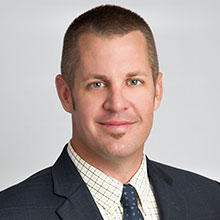
Travis Frosch, Senior Director of Analytics at GE Healthcare. Travis Frosch is an accomplished and high performing management Executive with substantial Product Management and Services experience in applying deep expertise in analytics, business intelligence, data mining, statistics, and consulting to solve healthcare leaders, IT staff, analysts, and clinicians’ most significant challenges. Currently, Travis is responsible for Analytics Services in North and South America, the Applied Intelligence cloud and on-premise business intelligence platforms, as well as overseeing the analytics Product Management across GE Healthcare. Travis has amassed 17 years of healthcare industry experience covering multiple verticals, with 14 years of proficiency in analytics and artificial intelligence on various platforms. He has a proven track record of starting and incubating new businesses and developing breakout innovations as well as successfully growing and scaling run rate businesses, all while winning many distinguished awards along the way. Prior to joining GE Healthcare, Travis was the Systems Administrator of the Cardiac Service line in a large hospital network in Orlando, FL. He graduated from the University of Central Florida, majoring in Health Service Administration and minoring in Healthcare Finance.
![]()
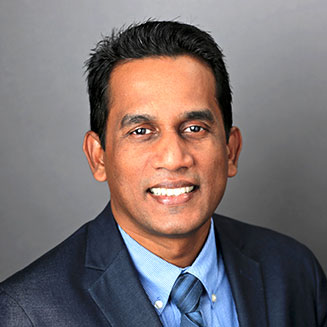
Neil Gomes, MBA, MEd, CSM, CSPO, Chief Digital Officer, Senior Vice President for Technology Innovation and Consumer Experience, Thomas Jefferson University and Jefferson Health. Neil has worked for the Fortune 500 Tata Group of Companies where he played a leadership role in building the intrapreneurial startup Tata Interactive Systems from 60 employees to the world’s largest custom e-learning development firm with 650+ employees in less than two years. Neil left the Tata Group to complete his M.Ed. in Instructional Design at the University of South Florida (USF) while progressively working towards the position of Director of eTeaching and Technology and then the Director of Instructional Design and Training at USF Health. While at USF, Neil’s leadership and entrepreneurial acumen helped grow a strategic team of application developers, instructional and multimedia designers, and project managers that generated over $1.5 million in annual auxiliary revenue from research and external development projects while growing online student enrollment from approximately 200 enrollments in 2002 to 60,000+ enrollments a semester by 2012. While at USF, Neil also began working towards his Ph.D., is currently a Ph.D. Candidate (ABD), has authored research publications, a book chapter, and delivered several formal research presentations. At Jefferson, Neil drives technology innovation in healthcare, consumer experience and engagement, training, and education via teams of application and web/mobile developers, portal solutions developers, simulation and UI/UX designers, trainers, documentation and digital consumer experience specialists, instructional designers, e-learning developers, and IT support specialists. Neil also helps define innovation strategy and design innovation development programs via Jefferson’s Innovation Team. Recently, he played a key role in securing a $15+ million donor grant from the Bernie Marcus Foundation to develop a high-tech, consumer-centric, integrative health center at Jefferson.
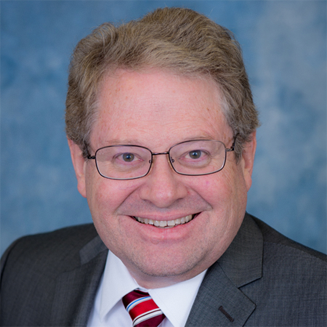
Jonathan Linkous, CEO of Linkous Health. Linkous was the founding CEO of the American Telemedicine Association, leading the development of telemedicine from concept to reality for the past 23 years, making it a well-known and accepted technology, improving outcomes, creating a growing market, and overcoming numerous barriers. His goal is to do for AI in healthcare what was achieved for telemedicine. Mr. Linkous has lectured and written extensively on healthcare modernization, technology issues, emerging applications, and market trends in the U.S. and around the world. He has served on a variety of national and international advisory bodies including the Hurricane Katrina Advisory Panel, the HHS Chronic Care Workgroup, and the joint FCC-NTIA Advisory Committee on Communications Capabilities of Emergency Medical and Public Health Care Facilities. He has 30 years of experience in public policy related to healthcare, telecommunications and aging in both the corporate and public sectors. In the private sector, he served as a senior telecommunications’ consultant at Issue Dynamics and provided consulting services to many of the nation’s leading telecommunications, technology and healthcare companies. Previously, he served as a national leader in aging services as the Executive Director of the National Association of Area Agencies on Aging, was a senior executive with the National Association of Regional Councils and the Appalachian Regional Commission, and previously worked in the television and radio industry in Columbus, Ohio.
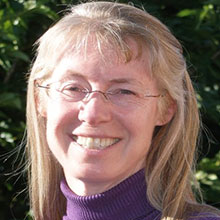
Laura McIntosh, PhD, DABT, CEO of EmPowerYu Inc. Dr. McIntosh is Founder and CEO of EmPowerYu, a startup in Silicon Valley that uses machine learning, AI, and an inference engine to provide continuous risk assessment of high medical risk people through analysis of their patterns of daily living in the home. Prior to EmPowerYu, she was a Managing Scientist at the scientific and engineering consulting company Exponent. While there, Dr. McIntosh directed a British Government grant to examine a proposed connection between pesticides and Parkinson’s Disease-patterned neurodegeneration using teams in the US and UK. She has been involved with startups for 20 years, including a medical/fitness device, pollution control technology, and energy management platform. Her attention was focused on Aging in Place during the last years of her mother’s life when medical and life decisions were being made from a distance. After taking care of her mother at home during the Hospice months, Laura started EmPowerYu to address the increasing need for home data to support care decisions. Dr McIntosh was trained at the Johns Hopkins School of Public Health and School of Medicine (Alzheimer’s Research Lab), had an internship at the Institut für Umwelthygiene in Düsseldorf, Germany, and did her Postdoctoral Fellowship and a Lectureship at Stanford University (stress hormones in neurodegeneration).
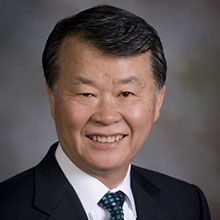
Seong K. Mun, PhD. Seong K. Mun, PhD, is Professor at Virginia Tech, Department of Physics and Director of the Arlington Innovation Center for Health Research. He also serves as CEO and President at the Open Source Electronic Health Record Alliance. At Georgetown University he served as Professor of Radiology, Director of the Division of Imaging Physics and Director of the Imaging Science and Information Systems Center. At Georgetown University, he pioneered work in teleradiology, PACS, telemedicine, e-health, global disease surveillance and open source surgical robotics. As a Georgetown Medical Center’s Associate Vice President, he provided oversight of the department’s congressional affairs for 12 years. In 1983, he led development of one of the first high-field, whole-body MRI systems at Columbia University Medical Center in New York City. Dr. Mun is a recipient of the General Max Thurman Award for Excellence in Military Medical Research for his contribution to military medicine.
![]()
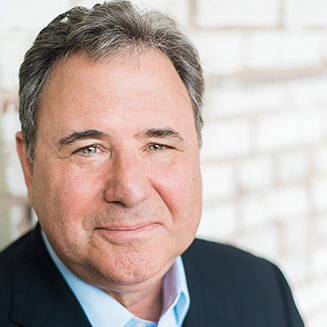
Daniel Pompilio, CEO and Founder of SimpleC. Daniel Pompilio, an Atlanta technology entrepreneur, is the CEO and Founder of SimpleC, the leading company in the science and development of technology enhanced behavioral therapies used to enhance health care. SimpleC has over 2,000 users in 10 states currently. Dan is the recipient of Emory Goizueta Business School’s 2004 Alumni Entrepreneurship Award. He received his EMBA from Emory University’s Goizueta Business School and an undergraduate degree in Business from The University of Georgia. He has over 25 years in corporate and strategic planning, sales and marketing executive positions in corporations such as N.V. Phillips, IBM and Healtheon/WebMD. Starting in 1992 he co-founded ActaMed Corporation, an Electronic Healthcare information system and transaction company, which merged to create Healtheon in 1999, later acquiring WebMD to become Healtheon/WebMD. In 2000 he founded a new company, enLeague Systems, which pioneered the use of ontology to streamline eBusiness transactions between business partners. Dan was the Chairman and CEO of enLeague, which was the first company to enter the Coca-Cola/Fizzion business accelerator. Dan currently serves on Emory University’s Board of Visitors and previously on the Goizueta Business School (GAB) Broadleaf Software, and the Cobb County Strategic Information Technology Council. Dan has been recognized for his efforts to improve technology business growth in Georgia as an Angel investor in over twelve technology start-up companies. Dan is a co-author of the Angel Tax Credit Bill and the Invest Georgia Bill.
![]()
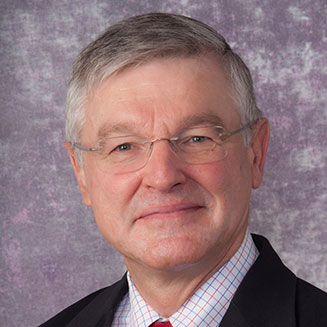
Ronald Poropatich, MD, Director, Center for Military Medicine Research – University of Pittsburgh. Dr. Poropatich is the Executive Director of the Center for Military Medicine Research, Health Sciences at the University of Pittsburgh. He is also a Professor of Medicine in the Division of Pulmonary, Allergy, and Critical Care Medicine at the University of Pittsburgh, and also serves as a Senior Advisor for Telemedicine, University of Pittsburgh Medical Center. Dr. Poropatich is an affiliated faculty member of the McGowan Institute. Dr. Poropatich is an experienced Pulmonary/Critical Care Medicine physician who served 30 years on active duty in the US Army retiring in 2012 at the rank of Colonel with extended assignments at the Walter Reed National Military Medical Center, Bethesda, MD, from 1985 to 2012. His last assignment was at the US Army Medical Research and Materiel Command (USAMRMC) at Fort Detrick, MD, serving as the Deputy Director of the Telemedicine and Advanced Technology Research Center (TATRC) from 2006-2012 where he managed large medical research programs and developed novel research programs and technologies in medical informatics and telemedicine. Dr. Poropatich received his medical degree from Hahnemann University in 1985 (now Drexel University). He completed his internship and residency in Internal Medicine at the Walter Reed Army Medical Center (WRAMC) in 1988 and was selected as Chief of Medical Residents in the WRAMC Department of Medicine from 1988-1989. He completed his fellowships in Pulmonary and Critical Care Medicine in 1992 also at the WRAMC. Colonel/Retired Poropatich led the U.S. Army effort from 1992-2012 in the development and deployment of telemedicine capability across 22 time zones for remote consultation for both overseas locations (Afghanistan, Iraq, Somalia, Kuwait, Haiti, Croatia) as well as stateside U.S. Army locations. He served as the U.S. Army Medical Informatics Consultant from 2000-2008. Since 1996, he has served as an Associate Editor for the journal “Telemedicine and e-Health,” is the former Chair of the NATO Telemedicine Expert Team (2000-2012), and former President (2002-2003) and Board Member of the American Telemedicine Association since 1995. Dr. Poropatich is a long-standing educator and has been faculty at the Uniformed Services University of the Health Science (USUHS), Bethesda, MD, since 1985 and currently serves as an Adjunct Professor of Medicine.
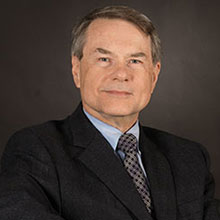
Fred Prior, PhD, professor and chair of the Department of Biomedical Informatics at the University of Arkansas. Prior previously worked at Electronic Radiology Laboratory, in the Mallinckrodt Institute of Radiology at Washington University School of Medicine in St. Louis, where he served as director since 2003. He is also director of the Center for High Performance Computing, which he created and supported with funding from the National Institutes of Health (NIH), as well as associate director of the Center for Biomedical Informatics and a research professor of radiology. He is the principal investigator for the Cancer Imaging Archive, supported by the National Cancer Institute, which provides researchers, educators, and the general public with a vast, freely accessible, open archive of cancer-specific medical images and metadata. Prior holds seven U.S. and international patents and is working with a consortium of investigators on the Human Connectome Project, which is comprehensively mapping neural pathways of the human brain. Prior serves as Special Issue Editor, Journal of Biomedical Informatics, Reviewing Editor, Computerized Medical Imaging and Graphics and Associate Editor, IEEE Journal of Biomedical and Health Informatics.

Jay Sanders, MD, FACP, FACAAI, CEO of The Global Telemedicine Group. Dr. Sanders, CEO of The Global Telemedicine Group, is also Professor of Medicine (Adjunct) at Johns Hopkins School of Medicine and a Founding Board Member and President Emeritus of the American Telemedicine Association. Known to many as the “Father of Telemedicine,” he developed the first statewide telemedicine system; the first Correctional telemedicine program; the first tele-homecare technology, called “The Electronic House Call”; and the first telemedicine kiosk. His consulting activities have included NASA, DOD, HHS, the FCC, State Governments, WHO, and multiple academic institutions and Fortune 500 companies. He is a graduate of Harvard Medical School, magna cum laude; a member of AOA; and did his residency training at the Massachusetts General Hospital, where he became Chief Medical Resident. In 1970, he developed and started the first Division of General Medicine in the country at the University of Miami, where he was Professor of Medicine and Chief of Medicine at Jackson Memorial Hospital. Other academic appointments include being Professor of Medicine and Surgery at the Medical College of Georgia, where he was Director of the Telemedicine Institute; Visiting Professor of Medicine at the University of Pennsylvania; and Visiting Professor at Yale University School of Medicine.
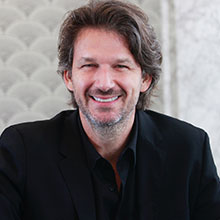
Wolf Shlagman, CEO and Founder, Care Angel. Shlagman, a life-long creative technologist, healthcare futurist and cognitive science evangelist, is currently CEO/Founder of Care Angel. As a serial entrepreneur, Wolf previously founded Consult a Doctor, which was acquired by Teladoc, Inc. (NYSE: TDOC), a Kliener, Perkins portfolio company, in 2013. Wolf is an innovator who has been shaping and transforming the telehealth space since the earliest days of digital health, nearly 20 years ago. He is a technology and business leader with executive level strategic, technical and partnership development experience. He is recognized as being a hands-on leader who is driven by passion in the pursuit of building impactful, enterprise platforms and consumer solutions targeted at helping alleviate the most pressing challenges affecting the entire healthcare ecosystem. Wolf is an AI addict and a behavioral economics fanatic with a demonstrated history of success.
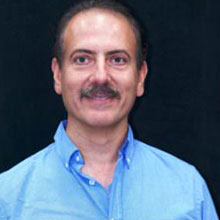
Eliot Siegel, PhD, Professor and Vice Chair at the University of Maryland School of Medicine, Department of Diagnostic Radiology, and Chief of Radiology and Nuclear Medicine for the Veterans Affairs Maryland Healthcare System. He is the director of the Maryland Imaging Research Technologies Laboratory and has adjunct appointments as Professor of Bioengineering at the University of Maryland College Park and a Professor of Computer Science at the University of Maryland Baltimore County. Dr. Siegel was responsible for the NCI’s National Cancer Image Archive and served as Workspace Lead of the National Cancer Institute’s caBIG In Vivo Imaging Workspace. He has been named as Radiology Researcher and Radiology Educator of the year by his peers as well as one of the Top Ten radiologists. Under his leadership, the VA Maryland Healthcare System became the first filmless healthcare enterprise in the world. He has written over 200 articles and book chapters about PACS (Picture Archiving and Communication Systems) and digital imaging, and has edited six books on the topic, including Filmless Radiology and Security Issues in the Digital Medical Enterprise. He has made more than 1,000 presentations throughout the world on a broad range of topics involving computer applications in imaging and medicine. Dr. Siegel served as symposium chairman for the Society of Photo-optical and Industrial Engineers (SPIE) Medical Imaging Meeting for three years, and is currently serving on the board of directors of the Society of Computer Applications in Radiology. He is a fellow of the American College of Radiology and of the Society of Imaging Informatics in Medicine.
![]()
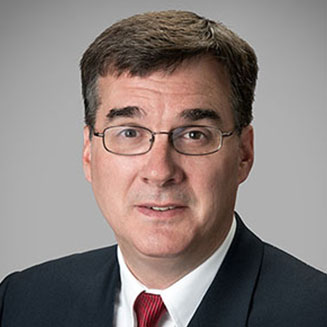
Bradley Merrill Thompson, Member of the Firm at Epstein Becker & Green, P.C. Brad Thompson counsels medical device, drug, and combination product companies on a wide range of FDA regulatory, reimbursement, and clinical trial issues. Mr. Thompson serves as Chairman of the Board of EBG Advisors, Inc. Mr. Thompson has more than 30 years of experience working with medical device, drug, and combination product companies on a wide range of FDA regulatory and reimbursement issues. For trade associations, Mr. Thompson has served as counsel to AdvaMed and the Continua Health Alliance; as General Counsel to the Combination Products Coalition, mHealth Regulatory Coalition, and the CDS Coalition; and as General Counsel and Secretary for the Indiana Medical Device Manufacturers Council (“IMDMC”). Mr. Thompson was elected by his peers as a Fellow of the American Bar Association, and he has received an “AV Preeminent” Peer Review Rating by Martindale-Hubbell, signifying the highest level of professional excellence. He was included in 100 Notable People in the Medical Device Industry (Medical Device & Diagnostics Industry, June 2004) and has been listed in Chambers USA: America’s Leading Lawyers for Business (2010 to 2016). He was selected by his peers for inclusion in The Best Lawyers in America© (2015 to 2017) in the field of FDA Law and included on the Indiana Super Lawyers list (2004 to 2006) and Washington DC Super Lawyers list (2013 to 2016) in the areas of Food and Drugs, Administrative Law, and Health Care.
![]()

Yulun Wang, PhD Founder, President & Chief Innovation Officer of InTouch Health, Inc. Dr. Wang founded InTouch Health in 2002, and served as Chairman & CEO until 2016, when he assumed the position of Chairman and Chief Innovation Officer. InTouch Health is a pioneering and market-leading telehealth company that enables patients to receive clinical care from specialists at a distance. InTouch has received numerous awards including Deloitte’s Technology Fast 500 Award and Inc. Magazine’s 500 award as one of the fastest growing companies in America. Previous to InTouch, Dr. Wang founded Computer Motion in 1990, the company which pioneered surgical robotics. He was the principal architect and inventor of the voice-controlled robotic arm called AESOP, the first FDA-cleared surgical robot, as well as the ZEUS robotic surgical system, which performed the world’s first transatlantic surgery. Computer Motion IPO’d in 1997 and merged with Intuitive Surgical (NASD: ISRG) in 2003 for one third of the resulting company. Dr. Wang is author to more than 50 technical publications and inventor on over 100 patents.
![]()
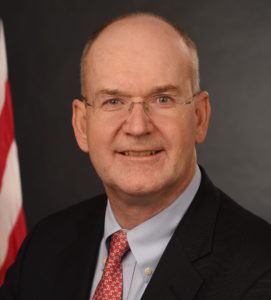
Dr. Don Rucker, National Coordinator for Health Information Technology in the U.S. Department of Health and Human Services
The Office of National Coordinator leads national health IT efforts, charged as the principal federal entity to coordinate nationwide efforts to implement and use the most advanced health information technology and the electronic exchange of health information. Previously, he was Clinical Professor of Emergency Medicine and Biomedical Informatics at Ohio State University and Chief Medical Officer at Premise Health, a worksite clinic provider. At Datamedic Corporation, Dr. Rucker co-developed the world’s first Microsoft Windows based electronic medical record. He then served as Chief Medical Officer at Siemens Healthcare USA. Dr. Rucker has served terms on the Board of Commissioners of the Certification Commission for Healthcare Information Technology and Medicare’s Evidence Development and Coverage Advisory Committee (MEDCAC) and has extensive policy experience representing healthcare innovations before Congress, MedPAC and HHS. He has practiced emergency medicine at Kaiser in California, Beth Israel Deaconess Medical Center in Boston, where he was the first full-time Emergency Department attending, the University of Pennsylvania’s Penn Presbyterian and Pennsylvania Hospitals and at Ohio State University’s Wexner Medical Center.
![]()
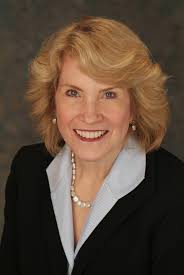
Dr. Molly Coye, Executive-in-Residence at AVIA and member of the Board of Directors, Aetna, Inc.
From 2010-2015, Dr. Coye served as Chief Innovation Officer for UCLA Health and head of the Institute for Innovation at UCLA, where she led the health system in identifying new strategies, technologies, products and services to support the large-scale transformation of healthcare. From 1999-2010 Dr. Coye was Founder and CEO of the Health Technology Center, the premier forecasting organization for emerging technologies in healthcare. She has also served as Commissioner of Health for the State of New Jersey, Director of the California Department of Health Services, and Head of the Division of Public Health Practice at the Johns Hopkins School of Hygiene. An elected member of the National Academy of Medicine, Dr. Coye has been a board member of the American Hospital Association and the American Telemedicine Association and chaired the board of the American Public Health Association and of PATH, one of the largest nonprofit organizations in global health.
![]()

Ritika Chaturvedi, PhD, Engineer, RAND Corporation
Ritika Chaturvedi, an engineer at the RAND Corporation, has a diverse background in biomedical engineering, science and technology policy analysis, asset valuation, strategic consulting, and translational biomedical research. Her research focus at RAND involves understanding the implications of emerging disruptive technologies in health care (e.g., Precision Medicine, AI, CRISPR, wearable devices, genetically modified organisms, regenerative medicine technologies, hospital Internet of Things, etc.) on society (scientific and economic impact, health impact, implications on diversity and equity, implications on the labor market, security considerations, reimbursement considerations, transparency and quality control, and day-to-day workflows). Prior to joining RAND, she worked in the commercial life sciences sector, applying systems-engineering methods to strategize optimal market penetration of biotechnological assets. Chaturvedi earned a Ph.D. in bioengineering from the Tissue Microfabrication Laboratory at the University of Pennsylvania. There, her regenerative medicine based dissertation focused on understanding the structure-function relationship between vascular geometry in various organ systems by creating predefined vascular networks within engineered liver and heart tissue that were capable of sustaining function upon implantation. She also worked for several years as a health policy analyst at the Science and Technology Policy Institute (STPI) in Washington D.C., and worked closely with National Cancer Institute leadership on its Clinical Trials Working Group initiatives. At STPI, she also had a strong interest in innovation and competitiveness, and led the 5-year process evaluation of the NIH Director’s Pioneer Award.
![]()

Dr Oliver Keown, MBChB, BMedSci (Hons)
Oliver is Senior Associate of Investing and Global Development on the Healthcare Investing Team at GE Ventures. Based in Menlo Park, CA, he joined in 2016. He supports healthcare venture capital investments, deal execution and startup deal flow across digital health, healthcare IT, precision medicine & life sciences, 3D printing for health and medical device domains, while engaging in strategic international development opportunities at the intersections of venture capital, health policy and Business Innovations for GE. Previously, Oliver was Clinical Advisor and Policy Fellow at the Institute of Global Health Innovation, Imperial College London, and Clinical Advisor to the Institute’s Director, Professor the Lord Darzi of Denham. In this role, he led and advised a range of international and UK-based healthcare projects across technology, policy, parliamentary, commercial, and academic fields. His responsibilities included considerable international work in Qatar and Myanmar and liaising with the UK House of Lords. Starting his career as a junior doctor in the UK National Health Service, Oliver transitioned out of clinical practice to pursue his passion for digital health, technology and policy. While attending University and beyond, he sat as a clinical representative and committee member for the British Pharmacological Society. Oliver holds an MBChB Medicine degree (MD equivalent) and a Bachelors of Medical Science in Pharmacology from the University of Edinburgh, Scotland. He has published academic papers and editorials in The Lancet, British Medical Journal, Health Affairs and with The King’s Fund on topics spanning population health, precision medicine, antimicrobial resistance, behavioral design for smoking cessation, the economic impact of Brexit, and the diffusion of healthcare innovation across global markets.
![]()
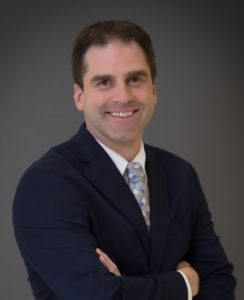
Brian Miller, PhD, GM & SVP of Systems and Vision, Intuitive Surgical
Brian Miller, Ph.D., brings more than 20 years of robotics experience to his position as Senior Vice President and General Manager, Systems and Vision at Intuitive. He also served as Vice President, System Engineering at Intuitive, and was instrumental in the development of innovative technology, obtaining several U.S. patents. Since joining Intuitive in 2003, Dr. Miller has contributed to the design of products in the areas of surgical system networking, surgical simulation, and surgical robotic systems. He began his career in the field of robotic surgery at Computer Motion developing software for the AESOP and ZEUS surgical systems. Dr. Miller earned his B.S. in Electrical and Computer Engineering from Iowa State University followed by an M.S. in Haptic Interface and Robotics and Ph.D. in Mechanical Engineering/Robotics from Northwestern University. Dr. Miller also attended the Advanced Management Program at Harvard Business School.
